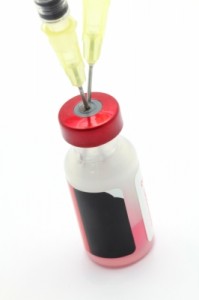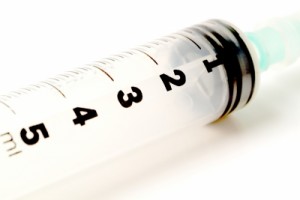Self-injecting vitamin B12 can be scary at times, and for good reason. Vitamin B12 shots are inserted intramuscularly, through the thickest, fleshiest and nerve-riddled parts of the body. If you’re considering self-administering vitamin B12 shots to treat pernicious anemia, then it’s important to speak with your doctor first, and learn some basic methods and precautions.
Vitamin B12 shots benefits
Vitamin B12 is found in all animal-based foods like beef, chicken, fish, and dairy products. Though most people (excepting vegans) eat plenty of B12-rich foods, many people are unable to digest vitamin B12 naturally from diet, and must insert vitamin B12 shots manually into the bloodstream through vitamin B12shots, in order to avoid the symptoms of vitamin B12 deficiency-pernicious anemia.
Signs of vitamin B12 deficiency include sluggishness, memory loss, muscular pains and spasms, and frequent numbness in the extremities.
By self-injecting with vitamin B12 shots regularly, you avoid the risks of nerve damage, mental exhaustion, and increased danger for heart attack and stroke that often accompany vitamin B12 deficiency.
Worried about Low B12 Lab Results?
Where should I inject vitamin B12 shots?
When self-injecting vitamin B12 shots, it’s important to make certain that the needle sinks deep into the muscle, and not just beneath the surface of the skin.
There are eight areas of the body that are safe targets for vitamin B12 shots. In order to avoid nerve damage, bruising, or loss of blood when self-injecting vitamin B12, it’s important to choose a part of the body that you are able to reach easily and comfortably.
Thighs– Aim the needle at the middle or outer portion of the thigh, on the upper leg area. Pinch the thigh tissue, and avoid inserting the needle too close to the knee or groin area.
Buttocks- This is a hard area to reach by yourself safely, so you may choose to have somebody else administer vitamin B12 shots in the buttock, in the upper outside area. Avoid the center of the buttock, in order to prevent sciatic nerve damage.
Hip muscle/ abdomen- If you choose to inject vitamin B12 shots into your hip or stomach muscle, avoid the area around your belly button. Also, if you have had a gastric bypass or caesarian delivery, then avoid irritating the scar tissue.
Upper arms- You may safely inject vitamin B12 shots into the fatty tissue behind your upper arms.
Please tell us…
Do you currently self-inject vitamin B12? Have you tried non-dietary over-the-counter supplements for vitamin B12 that also insert cobalamin into the bloodstream?
Do you have any questions or suggestions? Please leave your comments below.
Share with your friends!
If you found this article helpful, then please share with your friends, family, and coworkers by email, Facebook, or Google+.
Like this? Read more:
Preparing your Children for Shots- 6 Tips to Ease the Pain
Seven Stages of Vitamin B12 Deficiency
Sources:
How to Give an Intramuscular Injection
How to Self-Inject Vitamin B12
Where to Inject a Vitamin B12 Shot
Images courtesy of FreeDigitalPhotos.net









